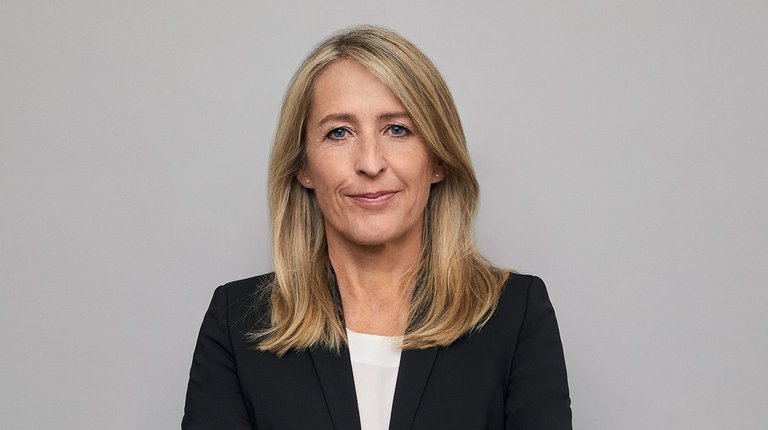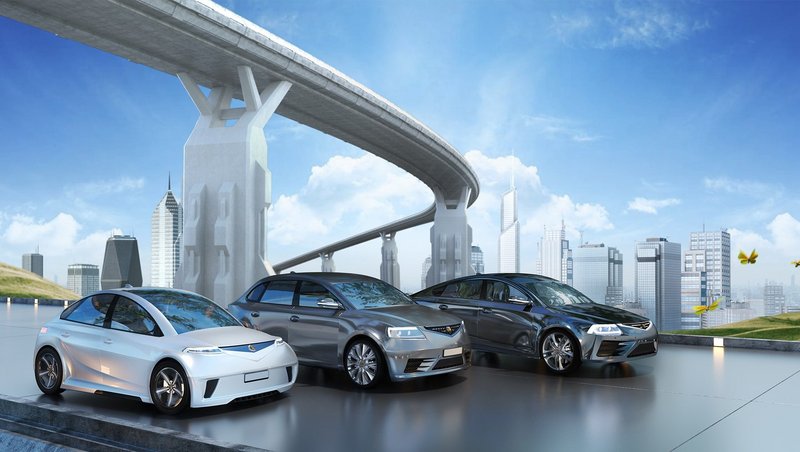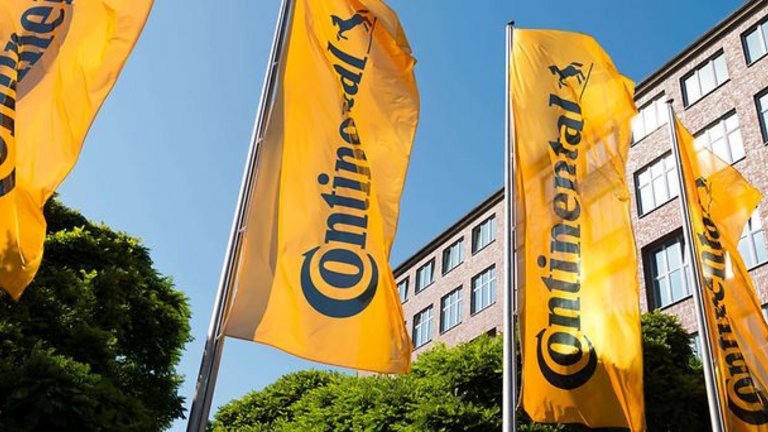Powertrain starts life as an independent company
- Organizational realignment completed in record time; new management team in place since April 1, 2019
- Technology company’s powertrain business to trade under the name of Vitesco Technologies
- Preparations on schedule for planned partial IPO in second half of 2019; company could begin trading in 2020
- Vitesco Technologies is managed by Andreas Wolf (CEO), Werner Volz (CFO) and Ingo Holstein (CHRO)
- Redefined business areas to be led by Wolfgang Breuer (Engine & Drivetrain Systems), Thomas Stierle (Hybrid & Electric Vehicle) and Klaus Hau (Powertrain Components)
- Distinct focus on electric drives together with further optimization of internal combustion engines aimed at halving CO2 emissions by 2030
Regensburg, April 30, 2019. Continental’s powertrain business has become the first part of the group to complete its realignment, with the management team fully in place since April 1, 2019. It now operates as an independent business that will trade under the name of “Vitesco Technologies”. The introduction of this new name is planned for the second half of 2019. The transformation of the division into a largely independent group of legal entities took place as planned at the start of 2019. Headed by Andreas Wolf, the new company’s management team is preparing for the planned partial IPO. The conditions necessary for informing the capital market of further details are likely to be in place by the end of the second half of 2019. The company will be ready to complete the partial IPO once further required technical and regulatory measures have been implemented, which means it can be expected from 2020 onward depending on the market situation.”
“We completed the transformation of Powertrain into an independent group of legal entities in record time. We could not have done this without the support of our people. The fact that over 99 percent of our employees moved to the new company demonstrates their confidence in the path that we have chosen to follow,” said Andreas Wolf. “The decision to become an independent business and the preparations for the partial IPO clearly show that we are both willing and able to change. These qualities will provide us with a competitive advantage.” The move to transform the Powertrain division into an independent company was prompted by the rapid changes that are expected to occur in the powertrain market over the next few years – the way the market evolves will largely be determined by government targets for emission limits.
According to Wolf, “The pace of regulation varies from one region to another. This calls for a great deal of flexibility on the part of the industry. As an independent company, we have more freedom as a business to react quickly and individually to the many different requirements.”
This flexibility is also alluded to in the new name. “Vitesco” comes from vita, the Latin for “life”, building on the image of energy, speed and agility. The second part of the name – “Technologies” – highlights the company’s ambition to be a supplier of innovative, groundbreaking technologies, systems and services.
A strong market position and a leader in powertrain electrification technology
The company’s business areas will be continuously and systematically developed to meet the future requirements of the market and of society, especially with regards to local and global emission targets. In addition to the combustion engine business, the company’s activities will also include all future business involving hybrid and electric drive systems as well as all current battery activities. The company is a longstanding technology leader in the field of powertrain electrification. It is one of the few system suppliers in a position to offer full electrification of the powertrain from a single source – from the 48-volt system and integrated hybrid solutions for transmission systems and axles to fully electric drives combined with highly efficient power and charging electronics and a battery management system that is optimized through intelligent energy and thermal management. Continental Powertrain’s innovative power electronics were a key component of the electric powertrain in the Jaguar I-PACE, which was voted European Car of the Year 2019. The importance of the company on the powertrain market is further underscored by its strong order book. This stood at approximately €11 billion in 2018, of which around €2 billion was attributable to the electric mobility segment.
“We are starting from a good position and are confident that the realignment will allow us to build strongly on this position,” said Wolf. “We plan to maintain an excellent range of products for a wide mix of drive technologies going forward. While the main focus will be on electrification, our intention is to cover everything from electrified internal combustion engines to full-battery electric and fuel-cell drives, as well as synthetic fuels. The reason for offering such a wide range of systems is to cater to the diversity of the markets and the different rates at which they are evolving, and the highly individual usage patterns of car drivers around the world.
“Powertrain already enables extremely eco-friendly conventional drives. In both gasoline and diesel vehicles, our technologies deliver emission values significantly below the relevant limits” explained Wolf. “In the medium term, our comprehensive support for mild and full hybrid solutions will help to optimize the high-volume car market.
And looking ahead to the long-term need for zero-carbon mobility, we are already developing next-generation electric drives and laying the groundwork for carbon-neutral, hydrogen-based fuels for use either in fuel cells or in the form of synthetic fuels for combustion engines.” Vitesco Technologies has set itself a clear environmental target: “Through electrification and the optimization of internal combustion engines, we want to help achieve a 50% reduction in CO2 emissions by 2030,” said Wolf.
Wolf, 58, took charge of the Powertrain division in October 2018. He was appointed Chief Operating Officer and Chief Executive Officer (CEO) of the new company following the change of the business into the new corporate setup on January 1, 2019. Wolf had previously served as head of the Body & Security business unit at Continental’s Interior division since 2007. Under his leadership, this business unit trebled its sales, exceeded its break-even point and continually achieved attractive profit margins. The two other members of the Powertrain management have both occupied leadership roles at Continental for many years. Chief Financial Officer (CFO) Werner Volz served as head of Finance and Controlling in the Chassis & Safety division from 2008 and played a major part in the restructuring of the division during the financial crisis of 2008/2009, as well as in the successful growth management of the driver assistance systems business. Chief Human Relations Officer (CHRO) Ingo Holstein was appointed head of Human Relations for the Tire division in 2010. He has extensive expertise in shaping businesses through HR work, as well as in management guidance and development.
Realigned business areas, devolved central functions
The new company has three business areas, each of which operates economically independent. Aiming to strengthen their portfolio and boost their performance, the former Engine Systems and Transmission units have been merged to create a new “Engine & Drivetrain Systems” (E&DS) business area. Its portfolio ranges from engine and transmission control units to injection systems, turbochargers and exhaust gas aftertreatment. The former Sensors & Actuators and Fuel & Exhaust Management units have also been merged to form the new Powertrain Components (PTC) business area
Its portfolio includes fuel delivery modules, catalytic converters and SCR dosing control units, as well as sensors and actuators for all types of vehicle and drive system. As a strategic growth area, there are no changes to the Hybrid & Electric Vehicle (HEV) business area, which encompasses all the main components for drivetrain electrification in hybrid and electric vehicles. The heads of the three business areas are Wolfgang Breuer (E&DS), Klaus Hau (PTC) and Thomas Stierle (HEV).
The structural changes have also affected certain central functions that were previously maintained at group level. In the course of the transformation process, the Powertrain business has established a number of those functions as a part of the organizationally independent company. One of the most important is the new Operations unit, which is responsible for all production and logistics functions. It primarily provides support to the global production facilities, which are now run by the new company. The company also has its own Sales & Marketing, IT and Quality & Environment functions.
The customers of Continental’s Powertrain business include all the major OEMs. The company has over 50 production and development facilities across all the regional markets and employs more than 42,000 people worldwide. The Powertrain business will remain under the overall stewardship of its head office in Regensburg.
The establishment of Continental’s powertrain activities as an independent group of legal entities forms part of a far-reaching organizational realignment undertaken by Continental in response to the profound changes in the automotive industry. In the future, the Continental Group will be divided into the three “group sectors” of Rubber Technologies, Automotive Technologies and Powertrain Technologies.

Simone Geldhäuser
Head of Media Relations, Spokesperson Finance, Business and Technology
Vitesco Technologies

Dr. Anne-Kathrin Bräu
Vice President Communications
Vitesco Technologies
- +49 941 790-994623


